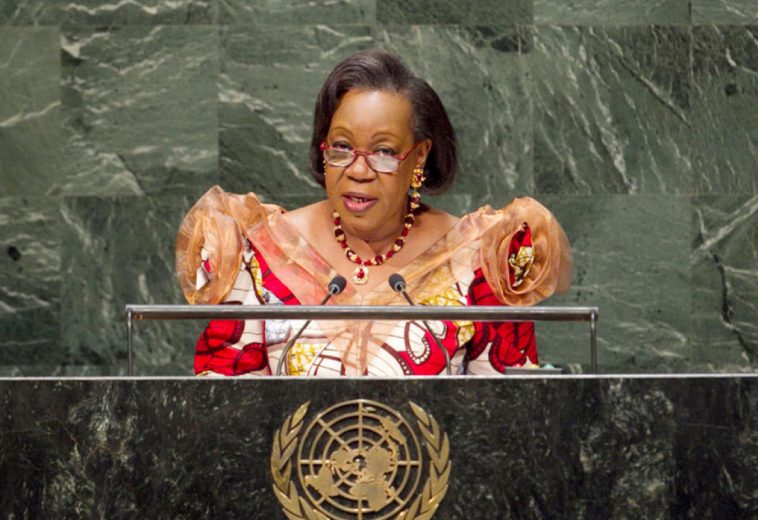Under Governor Uba Sani, Kaduna State’s governance has incorporated a comprehensive and multidimensional strategy aimed at catering to the different demands of the populace. Senator Uba Sani revealed the complex plans and wide-ranging projects his administration has implemented to move the state closer to development and prosperity in a recent in-depth interview with African Leadership Magazine. The governor presented a comprehensive governance model that aims to serve the various needs of the people of Kaduna. The approach highlighted the importance of education, infrastructure, security, rural development, agriculture, infrastructure, and the humanitarian activities of the Uba Sani Foundation.
Enhancing Education
The primary importance of education was emphasized by Governor Uba Sani in his administration’s plan for sustainable development. With plans to increase access to higher education, improve teacher welfare and standards, and encourage ICT proficiency among students, starting with basic education, ensuring that all students have a free and excellent education from primary to secondary school is a major goal. “Well-educated and healthy citizens are crucial for building a robust society and a prosperous economy. To this end, we have undertaken measures to ensure access to free and high-quality education for every child in Kaduna State, spanning from primary to secondary school,” he vowed during the interview session.
By building more elementary and secondary schools across Kaduna State, the administration is tackling the problem of out-of-school children and aggressively supporting girl-child education. The dedication to education infrastructure is demonstrated by the ongoing infrastructural expansions inside elementary and junior secondary schools, which include the commissioning of a 200-bed dormitory block, classrooms, and a sickbay.
Governor Uba Sani swiftly responded to popular complaints about tertiary education tuition prices by sanctioning a decrease in tuition for a number of state-run postsecondary educational institutions. This action is in line with the administration’s resolve to lessen the effects of growing living expenses, particularly in light of the recent elimination of Nigeria’s fuel subsidies.
Rural Development and Agribusinesses
Governor Uba Sani quickly cited rural development as the cornerstone of his administration’s policy in response to a query on employment creation. He emphasised that agribusiness has proven to be the most rapid way to reduce poverty in the state because Kaduna has so many resources at its disposal, including a temperate climate, an abundance of water, fertile land, and young, hardworking people who work in agriculture. According to him, “Rural development is at the core of our administration. Agribusiness stands as a major economic activity in our state and has been proven to be the fastest means of poverty reduction. We are blessed with favourable climate conditions, abundant water resources, fertile lands, and industrious youths engaged in farming activities across our state.
The governor presented an integrated strategy including crop and livestock production, as well as support services, to address issues facing the agro-industry. Strengthening the extension assistance system through public-private sector collaboration, updating and bolstering farmer databases, and concentrating on priority crops for industrial and export markets are essential components of this strategy.
Importantly, in an effort to guarantee higher returns for farmers, the administration is aggressively seeking to draw capital to commodity exchanges. The drive for automation and investments in agricultural processing is intended to accelerate the adoption of new technologies by offering dependable markets and fostering mentorship between larger-scale and smaller-scale farmers.
Governor Uba Sani emphasised the use of a vast network of perennial rivers and restricted irrigation systems to make the switch from rain-fed to year-round dry-season irrigated agriculture. Given that the state is a global leader in the production of important commodities like rice, sorghum, maize, soybeans, and the best ginger in the world, the administration is committed to getting more young people involved in agribusiness, giving them the tools and training they need, and helping more farms get Certificates of Occupancy (C of Os).
Infrastructural Development
The expansion of Kaduna State has been attributed in large part to the improvement of its infrastructure. In order to facilitate the rapid economic growth of rural communities, Governor Uba Sani outlined the Rural Transformation Agenda, emphasising the importance of expanding infrastructure in all local government regions. “Our administration is building upon and enhancing the infrastructure upgrades initiated by the previous administration, with the goal of improving public welfare and accelerating economic growth. We are currently executing our Rural Transformation Agenda, with a primary focus on extending infrastructure to all local government areas. This initiative aims to support rapid economic growth in our rural communities,” he assured.
The plan calls for the construction of a 5–10 km road network with solar street lights and efficient drainage systems at each rural local government region headquarters. There are plans to install solar mini-grids and upgrade the marketplaces at local government headquarters to function as hubs for aggregating agricultural and commercial activity. Additionally, the administration is staffing and outfitting these areas’ main health facilities to offer rural residents the basic medical care they require.
The goal of the Rural Access and Agricultural Marketing Project (RAAMP) is to build roads that will connect rural and urban communities. Several of these projects have already had groundbreaking ceremonies.
Security Initiatives
“Upon assuming office, I convened a Security Council meeting that brought together all heads of security agencies in Kaduna State. During this meeting, we conducted a comprehensive review of the security situation, identified challenges, and collaboratively devised strategies to invigorate the fight against banditry, kidnapping, and other criminal activities in the state,” Governor Sani reveals.
Ho also outlined specific initiatives and actions taken to improve the security situation in Kaduna State. Governor Uba Sani’s dedication to security was made clear. As soon as he took office, all heads of security agencies were gathered for a comprehensive Security Council meeting. This meeting enabled a comprehensive assessment of the security environment, the identification of obstacles, and the cooperative development of tactics to strengthen the resistance against kidnapping, banditry, and other criminal activity.
The administration’s commitment to strengthening security was evidenced by the better coordination between security agencies, the increase in logistical support, and the interaction with the new service chiefs.
The Kaduna Vigilance Service (KADVS) has trained 7,000 recruits at Police College, Kaduna, and plans to hire more staff members, demonstrating the organisation’s dedication to building a supplementary security force. Working with security agencies, KADVS is essential in battling criminal elements and delivering intelligence that can be put to use.
Governor Uba Sani highlighted the importance of citizen participation in the administration’s seven-point agenda. Aiming to fully engage important stakeholders in governance and mobilise the populace to take advantage of opportunities in commerce, health, and education, meetings were held with elders, traditional rulers, and local government representatives. The establishment of efficient grassroots intelligence-gathering mechanisms through collaboration with these stakeholders has made a significant contribution to the fight against insecurity in Kaduna State.
Uba Sani Foundation
The achievements of the Uba Sani Foundation demonstrated Governor Uba Sani’s commitment to humanitarian aid. One of the foundation’s achievements is that, through the Entrepreneurship Scheme, which runs in collaboration with the College of Agriculture and Animal Science, Mando, 100 beneficiaries have received training in fish farming and poultry production. The creation of business plans, assistance with business registration, and progress tracking demonstrated the foundation’s dedication to long-term economic empowerment.
Graduates in the Kaduna Central Senatorial District were empowered through employability and career fairs organised in partnership with the Sir Kashim Ibrahim Leadership Foundation. Training in a range of disciplines demonstrated the foundation’s dedication to diversified skill development, including photography, cinematography, cosmetology, makeup, baking, and confectionery.
The Uba Sani Foundation, which trained 80 women from each of the seven local government areas in the Kaduna Central Senatorial Zone, was instrumental in promoting the economic empowerment of women. The foundation demonstrated its dedication to educational advancement by incorporating school outreach into its operations, paying for JAMB registration fees, initiating the Uba Sani Annual Essay Competition, and giving scholarships to deserving secondary school seniors.
Executive Directives
In order to alleviate the financial isolation of roughly 2.1 million impoverished, marginalised, and susceptible individuals in Kaduna State, Governor Uba Sani issued an executive order emphasising financial inclusion. The state government’s efforts to guarantee that these people can take advantage of social intervention programs offered by the federal and state governments are supported by this executive order.
The administration is unwavering in its commitment to unleashing progress, from agricultural transformation to infrastructure development, security initiatives, education enhancement, and humanitarian efforts through the Uba Sani Foundation. The multimodal governance model presented by Governor Uba Sani provides a model for positive change and sustainable development as Kaduna State moves forward on its path to prosperity.
About Governor Uba Sani
Governor Uba Sani is the current governor of Kaduna State, Nigeria. His administration is focused on holistic development, addressing key areas such as agriculture, education, infrastructure, and security to enhance the well-being of the people of Kaduna State.
Senator Sani left a courageous and patriotic legacy when he demonstrated against military dictatorship in Nigeria. He used his networking and organisational abilities to establish a strong foundation for the Northern Nigerian pro-democracy movement. Additionally, he made extensive use of the Movement for Freedom and Justice, a civil society organisation, to defend the rights of the impoverished and provide them with unrestricted access to the legal system. He has held the positions of Deputy National Chairman (North) of the Joint Action Committee (JACON), chaired by Chief Gani Fawehinmi, SAN, and National Vice Chairman (North) of the Campaign for Democracy (CD) with success.


